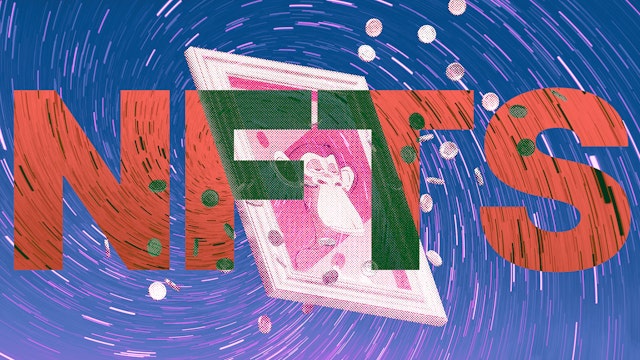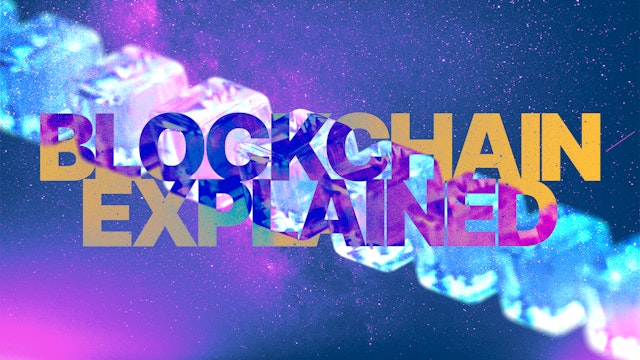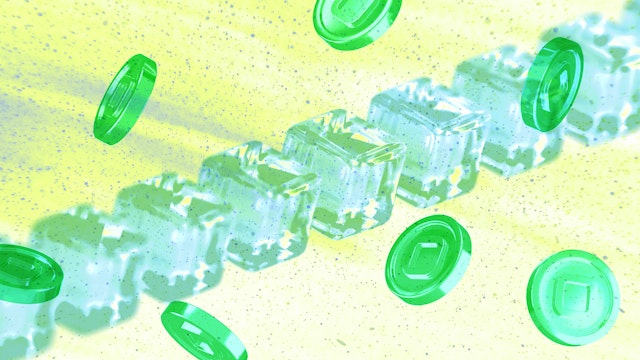What Happens If You Send Crypto to the Wrong Network?
Understanding cross‑chain compatibility and the recovery options available when funds go missing.
In this article...
- Sending cryptocurrency to an incompatible network can make the assets inaccessible and, in many cases, permanently lost.
- Self‑custody wallets usually offer recovery options, as do some centralised exchanges.
- Preventative measures such as test sends and careful network checks are the only reliable way to protect your transfers.

You have just bought your first meaningful amount of Ethereum. You copy the receiving address, check the first and last few characters, and press send. You wait five minutes. Then ten. Then an hour. Your wallet shows the funds as sent, but the receiving balance does not move.
This situation is extremely stressful. In traditional banking, a transfer to an invalid account often fails or is returned automatically. Blockchain transactions are different. They are final once confirmed. If you send funds to the wrong place, or on the wrong network, they will not bounce back. They can sit in a kind of digital limbo, sometimes for good.
Why the wrong network can mean lost crypto
Most cryptocurrencies live on specific networks. You can think of these networks as separate countries, each with its own rules and signals. A correct street address still needs to be in the correct country.
A common source of confusion is that several networks use similar or even identical address formats. For example, Ethereum mainnet, BNB Chain (formerly Binance Smart Chain), and Polygon all use addresses that start with "0x". Because the address looks valid, your wallet normally allows the transaction.
The problem appears when the receiving platform is only checking one network. For example, if you send a token on BNB Chain to an exchange deposit address that only listens for that token on Ethereum, the exchange does not detect the transfer. The funds are technically at that address on BNB Chain. However, the exchange is only monitoring the Ethereum version of that address.
Real‑life examples: The EVM trap
This mistake is especially common with Ethereum Virtual Machine (EVM) compatible chains.
Imagine a user wants to move Ethereum (ETH) from a self‑custody wallet to a centralised exchange. The user notices that sending via Ethereum mainnet costs around 14 EUR in gas fees, while sending via a layer 2 or another EVM chain like BNB Chain costs about 0.50 EUR. To save on fees, they pick the cheaper network.
They then send ETH to their exchange deposit address using this cheaper network. The exchange, however, only supports ETH deposits on the Ethereum network.
- The result: The ETH arrives at that blockchain address on the cheaper network and is visible on a block explorer. The exchange interface does not show any deposit, since its systems are not checking that network.
- The complexity: The exchange usually holds the private keys for that address. In theory, this means they could access the funds. In practice, their automated systems are not designed to recognise or credit deposits made via unsupported networks. Manual recovery, if offered, can be slow and expensive.
Recovery options
Whether recovery is possible depends mainly on where you sent the funds and which party controls the private keys.
Self‑custody wallets
If you sent the funds to a non‑custodial wallet such as MetaMask, Trust Wallet or a hardware wallet, and you control the seed phrase, recovery is often straightforward.
- Open your wallet settings.
- Add the network you actually used by mistake (for example, add the Polygon network if you sent funds there).
- If the token still does not appear, add the token manually using its contract address.
Because you own the private keys, you control the same address across all compatible EVM networks. The funds usually remain under your control, they are just invisible until you select the correct network and token.
Custodial exchanges and brokers
If you sent assets to a centralised exchange or broker, they control the private keys, not you. Recovery then depends fully on their policies and technical capacity.
- Exchanges: Some exchanges offer a recovery service for deposits sent on the wrong network or for unsupported tokens. This can involve complex and sensitive work by security engineers, including moving or exporting private keys. For this reason, the fee can be high and is often charged in advance. Amounts above €450 to €500 are not unusual, and the service is rarely guaranteed.
- Brokers: Many brokers route trades through partner exchanges or liquidity providers. If you use the wrong network when sending funds to a broker, they may need to coordinate with these external platforms. This adds time, cost and uncertainty. In some cases, no recovery is possible even if everyone involved is willing to help.
In both cases, only the official support team of that platform can confirm whether a recovery attempt is possible and what it might cost.
CoinJar’s approach to recovery
CoinJar provides a recovery service for certain cases, for example where funds are sent to supported CoinJar addresses via unsupported networks or involve unsupported tokens.
There is a standard recovery fee, typically around the equivalent of €100, although this may vary and is subject to change. The initial investigation is generally free, and the full fee is usually charged only if recovery is successful. Some platforms charge non‑refundable fees regardless of the result, so it is important to read the terms before agreeing.
Recovery is not guaranteed and may not be possible in every situation. Users should always check current CoinJar support documentation or contact CoinJar directly for up‑to‑date details and eligibility.
Risks and red flags: The "recovery agent" scam
If you talk about a lost transfer in public, especially on social media or online forums, you are very likely to attract scammers.
The scam: Bots or individuals send you private messages claiming to be "blockchain support", "CoinJar support" or "recovery specialists". They may say they can reverse your transaction, bypass the network, or hack the blockchain so you get your money back.
The reality: Public blockchains do not support transaction reversal by third parties. Once a transaction is confirmed, no outsider can simply undo it.
Typical warning signs include:
- Red flag: Anyone asking for your seed phrase or private key so they can "sync" or "repair" your wallet.
- Red flag: Requests for an upfront payment in crypto so they can "unlock" or "release" your funds.
- Red flag: Accounts pretending to be official support that contact you first, especially through direct messages or unofficial channels.
The basic rule is simple. Only the verified support team of the platform you actually used can legitimately assist you, and they will never ask for your seed phrase or full private key. If official support confirms that funds cannot be recovered, no independent "agent" can change that.
How to avoid network errors
Prevention is the only guaranteed protection. Once funds are sent on the wrong network, the result is often final.
Here are some practical steps.
- The test send: Before you move a large amount, send a very small test amount, for example €5 worth of the asset. Confirm that it arrives, shows up correctly, and is available for trading or withdrawal. Only then send the rest.
- Match the network: Check that the network selected in your sending wallet matches the network requested by the receiving platform. If the deposit screen says "USDC (ERC‑20)", you must select the Ethereum network in your wallet. If it says "USDC on Polygon" or "USDC on Solana", choose exactly that.
- Read warnings carefully: Many modern wallets and exchanges show warnings when there is a possible mismatch between address type and network. Do not ignore these alerts or click through them quickly.
- Whitelist addresses: If your exchange or broker supports address whitelists, enable this feature. Save trusted withdrawal and deposit addresses and use them instead of typing or pasting new ones every time. This reduces the chance of errors and malicious address replacement.
Taking a few extra seconds to confirm the network can save you from a permanent loss.
Summary
Blockchain technology allows fast, borderless transfers, but it is unforgiving when you make a mistake. Sending crypto on the wrong network is similar to posting a letter to the right house number in the wrong city. The address exists, but the intended recipient may never see it.
If you sent funds to a self‑custody wallet that you control, you can often recover them by adding the correct network and token. If you sent them to a centralised platform, recovery depends on its policies, technical constraints and fees, and may not be possible.
The safest approach is to focus on prevention. Always verify the network, read deposit instructions carefully, and perform a small test transaction before you move larger amounts. This careful routine reduces stress, avoids unnecessary fees and gives you a much better chance of keeping your crypto secure.
For CoinJar customers, visit CoinJar Support to submit a recovery request if you've sent funds to an unsupported network.

Suggested Articles

What Is an NFT? A Guide to Digital Ownership
Learn what an NFT is, how non-fungible tokens prove digital ownership, and explore real-world use cases, risks, and future applications.Read more
What Is a Blockchain? A Simple Guide to the Tech Behind Crypto
Understanding the decentralised digital ledger technology that powers Bitcoin, Ethereum, and the future of the internet.Read more
What is Chainlink? Here are Some Answers to Common Questions
What is Chainlink? What is an Oracle? What does LINK do? Here are some answers to queries about LINK.Read moreBrowse by topic
Warning: Past performance is not a reliable guide to future performance. If you invest in this product, you may lose some, or all, of the money you invest. The above information is not to be read as investment, legal or tax advice and takes no account of particular personal or market circumstances; all readers should seek independent investment, legal and tax advice before investing in cryptocurrencies. There are no government or central bank guarantees in the event something goes wrong with your investment. This information is provided for general information and/or educational purposes only. No responsibility or liability is accepted for any errors of fact or omission expressed therein. CoinJar Europe Limited makes no representation or warranty of any kind, express or implied, regarding the accuracy, validity, reliability, availability, or completeness of any such information. CoinJar Europe Limited is authorised by the Central Bank of Ireland as a crypto-asset service provider (registration number C496731).
Your information is handled in accordance with CoinJar’s Privacy Policy.
Warning: Past performance is not a reliable guide to future performance. If you invest in this product, you may lose some, or all, of the money you invest. The above information is not to be read as investment, legal or tax advice and takes no account of particular personal or market circumstances; all readers should seek independent investment, legal and tax advice before investing in cryptocurrencies. There are no government or central bank guarantees in the event something goes wrong with your investment. This information is provided for general information and/or educational purposes only. No responsibility or liability is accepted for any errors of fact or omission expressed therein. CoinJar Europe Limited makes no representation or warranty of any kind, express or implied, regarding the accuracy, validity, reliability, availability, or completeness of any such information.
CoinJar Europe Limited is authorised by the Central Bank of Ireland as a crypto-asset service provider (registration number C496731).
For more information on our regulatory status and the crypto-asset services we are authorised to provide, please see our official announcement and our MiCAR Legal & Regulatory Information page.
Apple Pay and Apple Watch are trademarks of Apple Inc. Google Pay is a trademark of Google LLC.
This site is protected by reCAPTCHA and the Google Privacy Policy and Terms of Service apply.

